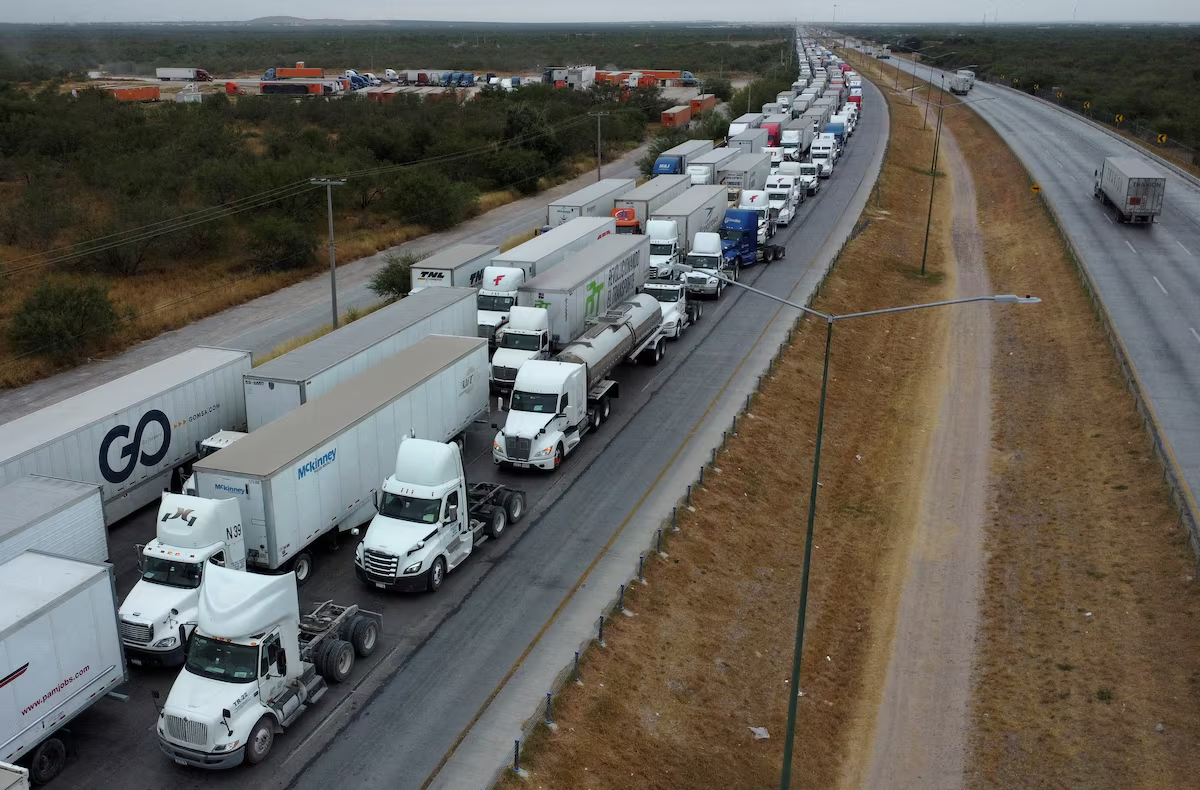Mexican President Claudia Sheinbaum warned Wednesday that Mexico would impose retaliatory tariffs if President-elect Donald Trump implements his proposed 25% across-the-board tax on Mexican imports, a move her government claims would eliminate 400,000 American jobs and increase prices for U.S. consumers.

“If there are U.S. tariffs, Mexico would also raise tariffs,” Sheinbaum declared during a press conference, marking her strongest stance yet on potential trade countermeasures against Mexico’s largest trading partner.
Economy Minister Marcelo Ebrard, appearing alongside Sheinbaum, characterized Trump’s proposal as “a shot in the foot” that appears to violate the USMCA trade agreement. He detailed how the tariffs would particularly damage major automotive manufacturers, including Ford, General Motors, and Stellantis, while noting that 88% of pickup trucks sold in the U.S. are manufactured in Mexico.
“The average price of these vehicles will increase by $3,000,” Ebrard said, pointing out that pickup trucks are especially popular in rural areas that heavily supported Trump. The automotive sector represents nearly 25% of North American vehicle production, with Barclays analysts warning the tariffs “could wipe out effectively all profits” for Detroit’s major automakers.

Trump has tied the tariffs to demands for controlling drug flow – particularly fentanyl – and migration into the United States. Sheinbaum, who later reported an “excellent” phone conversation with Trump about “strengthening collaboration on security issues,” noted that migrant caravans are no longer reaching the U.S. border “because they are attended to” in Mexico.
The Institute of International Finance warned of challenging U.S.-Mexico relations ahead, as the USMCA faces review in 2026. Banorte’s international economics director Katia Goya predicted the three member nations would likely seek comprehensive renegotiation rather than simple renewal.
Ebrard emphasized that USMCA trade reached $1.78 trillion in the first nine months of this year, advocating for regional cooperation over trade conflicts. “We can fragment and divide with tariffs,” he said. “Mexico does not want conflicts and divisions, but to build a stronger region.”
Trump’s transition team defended the tariff proposal, with spokesperson Brian Hughes saying it would protect U.S. manufacturers and workers from “unfair practices of foreign companies and foreign markets.” Many analysts, however, view the threats more as negotiating tactics than concrete trade policy.



